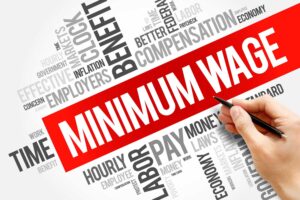With the UK’s Spring Budget just around the corner, anticipation is building as Chancellor Jeremy Hunt prepares to unveil potential tax cuts that could provide much-needed relief to individuals and families across the nation. But can he make a better job of balancing the books than he can balancing his own moral compass? With an early general election looming, and fervent speculation it could arrive as early as May 2024, pre election budgets have historically seen a big tax giveaway to gain favour with voters and 6th March budget will likely be no different. Among the proposals under consideration are reductions in personal income tax and another reduction in employee national insurance, offering hope for a financial boost for households amidst economic uncertainties.
As the Chancellor navigates the delicate balance between fiscal responsibility and addressing the needs of the people, speculation is rife regarding the nature and extent of tax reforms that may be announced. Personal income tax cuts, if implemented, could translate into tangible savings for taxpayers, and alleviate financial burdens, particularly for low and middle-income earners.
The prospect of tax cuts has garnered widespread attention and sparked discussions among policymakers, economists, and the public alike. Advocates argue that such measures could stimulate consumer spending, bolster economic growth, and provide much-needed relief to households grappling with rising living costs. However, sceptics caution against the potential impact on government revenues and the overall fiscal balance.
Amidst the excitement surrounding potential tax cuts, there’s a push for simplification within the tax system. Rather than costly cuts, Hunt may opt for measures like increasing personal allowances or adjusting the child benefit cliff edge, providing tangible relief for taxpayers. Additionally, simplification of the tax system, such as eliminating the unofficial effective 60% tax band, could be on the agenda. This could involve adjustments to income tax bands and allowances to streamline processes and provide relief to taxpayers across various brackets. Moreover, there’s anticipation surrounding potential reforms in inheritance tax and lifetime ISA regulations to address broader concerns and incentivise specific behaviours.
Hunt had been weighing up a 2p cut in income tax but the £13.7 billion a year cost makes it unaffordable in the current climate. The government has also shelved plans to cut stamp duty and inheritance tax and to extend child benefit to middle-income families.
As anticipation mounts, the Chancellor faces the challenge of striking the right balance to ensure the sustainability of public finances while delivering meaningful benefits to taxpayers. The upcoming budget announcement is eagerly awaited as it promises to shape the economic landscape in the run up to a general election.
With expectations running high, all eyes will be on the Chancellor as he takes the podium to unveil the much-anticipated budgetary measures. As the nation awaits the outcome of the Chancellor’s deliberations, hopes are high for a budget that not only charts a course for economic recovery following last weeks shock recession news, but also provides much-needed relief to UK business, individuals and families across the UK.





